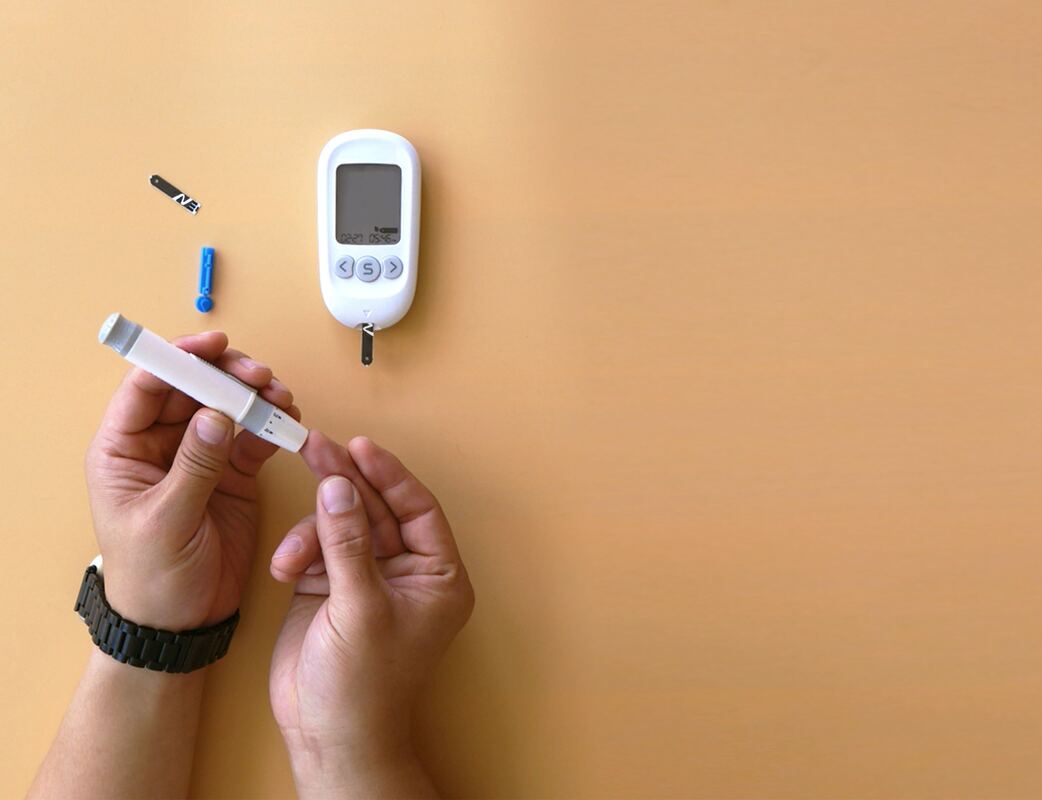|
When your blood sugar levels are not regulated, you may experience hearing loss.
Diabetes and hearing loss are common health issues among American adults. There have been reports from nearly 15% of adults in the U.S. (37.5 million) who said they experienced problems with their hearing. Symptoms of hearing loss generally worsen as a person ages. Roughly 25% of people between 65 and 74 years old have this condition. About 50% of people, at least 75 years old, sustain disabling hearing loss. There is an overlap among patients with both diabetes and hearing loss. According to the American Diabetes Association (ADA), patients with diabetes are twice as likely to have hearing loss than patients who do not have diabetes. In the U.S., patients with prediabetes blood glucose levels are more likely to have a 30% higher rate of hearing loss than patients with average blood glucose levels. Diabetes and Hearing Loss can lead to Sensory Damage. Your nervous system can become damaged from unmanaged diabetes. That can impact your whole body. A common symptom is the inability to hear high and low frequencies. Other risk factors may include heart disease, low HDL cholesterol, peripheral neuropathy, and overall poor health. If you have diabetes and chronic diseases, you should get a hearing test. Some medications related to diabetes affect a patient’s overall health, which can negatively impact their hearing. There are some things you can do to curb this problem.
How can Diabetes lead to Falls? Falls are another thing to worry about if you have diabetes and hearing loss. The vestibular system, located in the inner ear, is the sensory system that gives the fundamental sense of balance and spatial orientation on a person’s movement with balance -. The vestibular system can become damaged due to diabetes. The top complaint from patients over 70 years old, with diabetes and hearing loss, is vertigo. Hearing problems that remain untreated can harm relationships, whether they are personal or professional. These are some reasons why taking care of both diabetes and your hearing should be a priority. Better hearing can lead to better overall health by giving you more energy to live your life. Contact Northumberland Hearing Center for a hearing exam and consultation with our hearing care professionals.
0 Comments
If you recently saw a fireworks display, it was a good reminder of how loud they can get. Noises from fireworks can reach up to 150 to 175 dB. Annually, people who go to a live fireworks display without hearing protection experience some loss in their hearing abilities.
Whether you experience hearing loss or not, please protect your hearing the next time you plan to see fireworks. If you’ve recently noticed problems with your hearing after seeing fireworks, see an audiologist immediately. It only takes one exposure to loud noise to permanently damage your hearing. Prolonged exposure to any noise over 70 decibels (dB) can begin to deteriorate your hearing health. In the future, how should you prepare yourself before seeing fireworks? 1. Are you standing far away from the source of the noises? The farther away you are from the bursts of noises, the less likely you are to experience problems with hearing. 2. How far should you distance yourself from the source of the fireworks? The World Health Association has stated that adults should not be exposed to noises from fireworks that reach over 140 decibels (dB). Fireworks noises that reach over 120 dB can be dangerous for children. Adults can safely be 15 to 20 meters away from fireworks that reach 170 dB. Kids should stand 50 to 60 meters away. Babies should never be exposed to fireworks because the noise creates too much sound pressure. 3. Wear protection for your Ears. No matter what type of fireworks you plan to see - store-bought or professional fireworks displays - protect your ears. There are two types of hearing protection to choose from:
If you are experiencing changes to your hearing from exposure to loud noises or for any other reason, please contact Northumberland Hearing Center. If you’re still thinking about a New Year’s resolution, consider some preventative measures and solutions that will lower risks to your hearing health.
Preserve Your Hearing In the U.S., one in three people has noise-induced hearing loss (NIHL). It occurs when sensory cells (hair cells) located in the inner ear (cochlea) become impaired. Any contact with a loud noise, factoring in the intensity and duration, can cause permanent harm or destruction to the hair cells. It’s important to note that after the hair cells are destroyed, they cannot regrow. Seriously consider these three tips to protect your hearing:
Don’t Smoke Regular smokers are twice as likely to have hearing loss compared to non-smokers. A non-smoker who lives with a smoker is also more likely to develop hearing loss. Cigarettes that contain nicotine, along with carbon monoxide, actively work to restrict the flow of blood. It thwarts oxygen from circulating through the inner ears. Poor blood flow can cause your ear’s sensory cells to deteriorate. Get Regular Exercise Taking care of your overall health can impact how good your hearing can be. Regularly exercising, no matter how simple or rigorous, can lower chronic illnesses and further problems with your hearing abilities. Those who are overweight are more prone to have type 2 diabetes. Patients with diabetes are twice as likely to lose their hearing. Obesity causes a person’s heart to do extra work so that blood will adequately circulate throughout the body. That includes circulating through the ears. High blood sugar levels can harm the inner ear’s blood vessels and impact how well a person can hear. Get Your Hearing Tested The first step to identifying if you have hearing loss is by receiving a hearing test. As with any health concern, early treatment can help your quality of life.
For this New Year, include hearing health as part of your resolutions for this year and beyond by contacting Northumberland Hearing Center for a hearing exam and consultation. Hearing loss affects the person who has it, everyone who interacts with them, how they walk, and their balance. It can also increase the risk of dementia and Alzheimer’s.
A research team from Johns Hopkins revealed that mild hearing loss posed twice the risk for dementia, and anyone with moderate hearing loss was three times more likely to develop this condition. Those with severe hearing loss are five times more likely to form symptoms of dementia. Hearing and Your General Health Participants from the study who had hearing loss underwent brain scans. The results indicated that hearing loss might lead to a higher chance of experiencing brain atrophy. Isolation is common in those with difficulty with hearing, which can lead to anxiety, dementia, and depression. If you can’t hear very well, it’s more likely that you’ll withdraw from others and won’t participate in conversations as often as you used to. The combination of these issues can cause dementia. When you experience various environments, your ears pick up subtle signals which reinforce your balancing abilities. Not being able to hear these cues can cause imbalance and falls. Processing sound can also be problematic, as listening fatigue may occur. This subconscious form of multitasking could prevent your brain’s ability to safely walk. What are the Causes and Symptoms of Hearing Loss? Some causes of hearing loss include: If you notice trouble with hearing soft or high-pitched sounds, this is the earliest sign that you have damaged stereocilia - fragile hair cells which transmit sound waves into electrical signals in the ear. Sounds that are considered soft include conversations that happen over a phone call or when there’s background noise in a noisy area like a restaurant or public park. Examples of high-pitched sounds can include women’s and children’s voices. Tinnitus is another sign of hearing loss. 4 Hearing Health and Hearing Aid Myths There are no shortcomings if you have hearing loss and wear hearing aids. Most people who use them have found the devices to be beneficial. The ability to listen and talk to others who are patient enough to engage with you can change someone’s life. Time and perseverance are crucial during this stage. Any range of hearing loss can happen to any person at any age. Few people use hearing aids due to various factors from lack of affordability to denial of their hearing problem. There is still some stigma to wearing hearing aids that prevent those who need them from obtaining a pair. Myth #1: My hearing loss isn’t serious The average person with hearing loss waits nearly 10 years before seeking help for their hearing loss. They may begin to notice that having conversations with others is becoming progressively more difficult during this time. They may also start to isolate themselves to avoid this issue, which can increase the risks of Alzheimer’s and dementia, and lead to poor overall health. Nobody but you can advocate for your health, communicate what’s wrong, and let healthcare providers know what needs to be improved. Myth #2: Hearing aids are only for the elderly Hearing loss can happen to anyone from a newborn to a senior citizen. Birth defects, noise-induced hearing loss, viruses, etc. can cause loss of hearing abilities. Some patients treat their hearing loss with hearing aids. Most older generations want to hide their hearing loss/hearing aids for different reasons. They may see it as a sign of aging, or a stigma that used to be associated with wearing hearing aids. The healthiest way to manage hearing loss is to figure out the best way to communicate. This can include wearing hearing aids, using an assistive listening device (ALD), utilizing a voice-to-text/caption app, using sign language, or any other form of communication. Maintaining a connection with others lets you have a healthier and happier brain. Myth #3: Hearing aids are not stylish Nearly everyone wears something in their ears these days. This can range from hearing aids to AirPods ™. Nobody does a double-take of your ears or notices something is in your ears. If they do, your hearing aids may be mistaken for earbuds. Hearing aids come in different sizes and styles from completely-in-canal (CIC) to behind-the-ear (BTE). A professional fitting by a hearing instrument specialist will guarantee no feedback noises and a comfortable experience while donning them. Myth #4: Hearing aids are tricky to use With patience and proper guidance, adjusting to hearing aids during a trial period can be a smooth transition. Your hearing aid provider will help you through this adjustment process by giving demonstrations, training, and guidance with your devices. If you notice any hearing loss and need your hearing tested, contact us at Northumberland Hearing Center for assistance. Everyday sounds - from a person’s voice to an engine sound on a motorcycle - are measured in decibels. They make up power, sound pressure, and voltage.
Calculating the Strength of Sound Sound travels through currents of energy. It’s evaluated through amplitude and frequency. Amplitude Amplitude is recorded as decibels (dB), or the measurement of forcefulness or pressure in sound. The higher amount of amplitude there is in a sound, the louder it is. In other words, it’s the volume level. Frequency Frequency is the measurement of sound vibrations every second, and it’s recorded using hertz (Hz). It’s connected to a tone’s low or high sound. For instance, the pitch of a child’s voice is found in the high-frequency range. Hearing loss among the elderly is typically in that frequency range. Decibels Increase Exponentially When decibels increase by 10, that means it’s 10 times louder. When they increase by 20, that means the sound is 100 times louder. Familiar Sounds and their Decibels To the average person, decibel measurements can’t be easily understood unless you regularly use and are familiar with a decibel meter app. Hearing loss can happen after frequent or prolonged exposure to at least 70 dB. The following noises can instantly cause permanent hearing loss after one close-range exposure: 150-160 dB: After a shotgun/firearm goes off 140 dB: A jet engine as it leaves a runway/fireworks 120 dB: Concerts or the siren on an emergency vehicle The following noises can lead to permanent noise-induced hearing loss (NIHL) after constant, extensive exposure: 110 dB: Rock concerts 105-130 dB: Sports events (depending on the arena/stadium’s size and style) 105 dB: Using earbuds or headphones to listen to music at the highest volume 100 dB: The engine of a running motorcycle 90 dB: Using electric power tools or a gas-powered lawn mower 80-90 dB: Heavy traffic It’s common for those with untreated mild-to-moderate hearing loss to struggle with hearing these faint sounds: 70 dB: Vacuum cleaner 60 dB: An ordinary conversation with another person 50 dB: A conversation with a group of people 20 dB: Rustling leaves 10 dB: Breathing Decibel Measurement Hearing loss measurement is based on the minimum range of decibels to which a person can listen. Someone with normal, healthy hearing can hear rustling leaves or water dripping from a faucet and into a sink or on the ground (~10 dB). A person who has mild hearing loss cannot hear that sound. Frequency and pitch are other elements of hearing loss. Generally, high-pitched hearing loss is more prevalent than low-pitched hearing loss. Here are some combinations of decibel and frequency loss. 10-20 dB: Normal hearing ability 25-40 dB: Mild hearing loss 40-55 dB: Moderate hearing loss 55-69 dB: Moderately severe hearing loss 70-89 dB: Severe hearing loss 90-120 dB: Profound hearing loss Determining whether Your Surroundings are Too Loud If you find yourself in a space that seems too noisy and are concerned about your hearing, try the following:
Take Precautions, and be Extra Cautious if You Already Experience Hearing Loss. Hearing aid users should be mindful of the noise levels of their environments. Hearing aids amplify sounds, so you are still at risk of noise exposure. You can talk to your hearing instrument specialist about various programmed settings to use on your hearing aids when going to different environments. Hearing aids that are switched off should not be worn to try and protect your hearing. If they do not comfortably fit in your ear canal, they cannot obstruct harmful noise levels when switched off. You just won’t be able to hear sounds that you need/want to hear. For future events that you plan to attend, or loud activities that you plan to participate in, discuss which hearing protection would work best for you at your next hearing appointment. If you are experiencing hearing loss, please contact us at Northumberland Hearing Center. |
Archives
July 2024
Categories
All
|






 RSS Feed
RSS Feed
